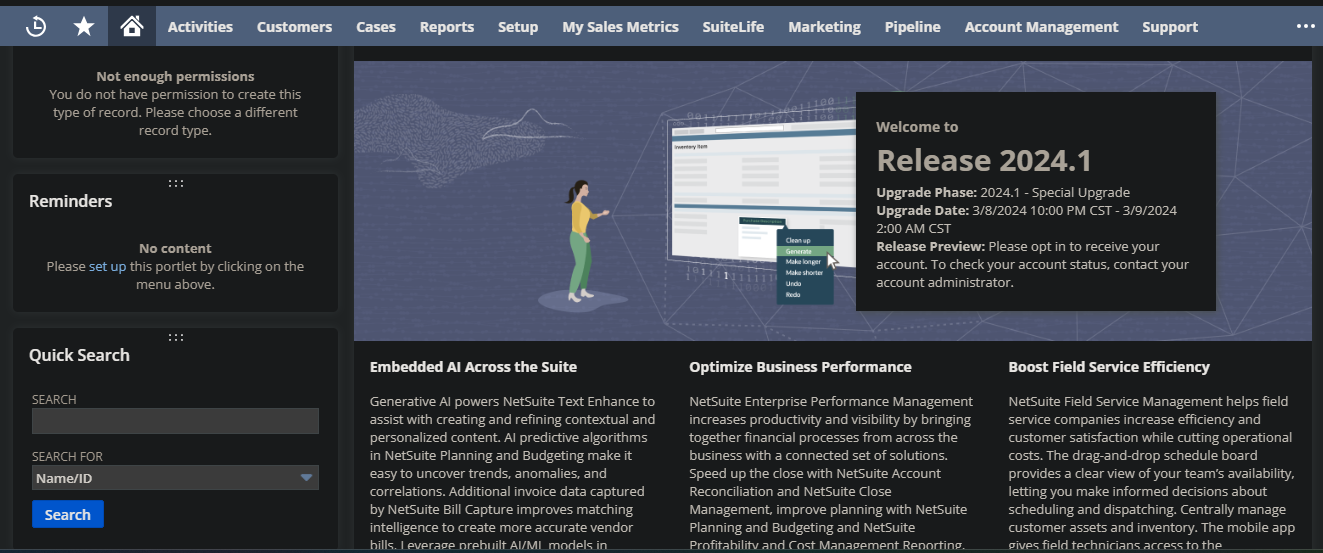Expanding your business is an exciting phase that opens up new opportunities and reflects the success you’ve achieved. However, this growth also brings challenges that, if not managed properly, can jeopardize not only this prosperous stage but the stability of your entire business.
In this blog, we highlight the most common mistakes businesses make when expanding and how you can avoid them to ensure sustainable and successful growth.
Tekiio Editorial Board
Recent posts by Tekiio Editorial Board
5 min read
10 Mistakes to Avoid When Expanding Your Business
By Tekiio Editorial Board on Sep 4, 2024 6:00:00 AM
Topics: ERP B2B Process bussiness best practices Planning Process
5 min read
From Chaos to Control: How Cloud ERP Transforms The Businesses?
By Tekiio Editorial Board on Apr 17, 2024 6:45:00 AM
In today's digital age, businesses face a constantly evolving market landscape. Adaptability is key to success, and companies must be able to react swiftly to changing conditions.Enterprise Resource Planning (ERP) software can be a powerful tool to enhance your business's agility.
This blog post will delve into the many advantages an ERP system, particularly a cloud-based one, can offer your company in terms of efficiency and competitiveness. We'll also explore real-world examples to help you decide if implementing an ERP system is the right step for your business's growth journey.
Topics: NetSuite ERP SaaS B2B Software en la nube ERP Cloud CFO
6 min read
6 keys to be a successful wholesaler in the digital era
By Tekiio Editorial Board on Mar 26, 2024 6:30:00 AM
The wholesale industry is at a critical juncture. Changes in the business landscape, driven by trends such as digital transformation, nearshoring, and evolving consumer expectations, demand a strategy to ensure profitability and success in the future. If you run a wholesale business, how can you thrive in the digital age? In this blog, we provide six tips that will make you a successful wholesaler.
Topics: Manufactura comercio electronico Innovación Tecnologica Procesos B2B Distribución
4 min read
NetSuite modules list, the must-have for your company
By Tekiio Editorial Board on Mar 13, 2024 5:30:00 AM
As an entrepreneur, you understand that efficiency and optimization are key to success. Outstanding companies leverage technology to streamline processes, improve decision-making, and gain greater visibility into their operations.
As one of the market's leaders, NetSuite offers a complete Enterprise Resource Planning (ERP) systems for tracking all business processes. But, how is it made up? We would like to invite you to read on to understand the NetSuite modules that benefit businesses like yours.
Topics: NetSuite ERP Manufactura Finanzas SaaS B2B Oracle NetSuite Cloud ERP
5 min read
Netsuite 2024 release 1: meet some of the new updates
By Tekiio Editorial Board on Feb 9, 2024 11:48:38 AM
Last week, NetSuite, the leading platform in ERP and business software, announced the launch of Release 2024.1. This update promises a series of features and improvements designed to boost efficiency and productivity for businesses, with a focus on the integration of Artificial Intelligence (AI) into its core modules.
In this article, we'll highlight some of the most significant innovations of NetSuite 2024 Release 1 and explain how these features can benefit your business.





